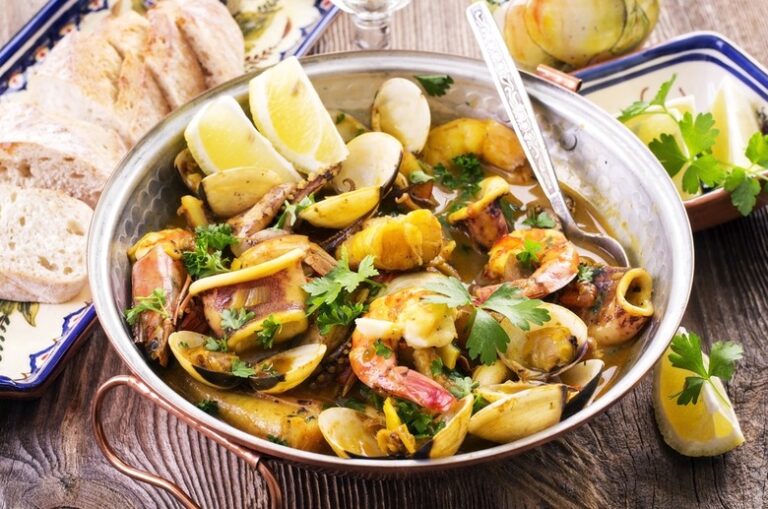Introduction: Portuguese Exploration and Culinary Traditions
The Portuguese are known for their seafaring explorations that expanded their kingdom and influence across the world. Along with their conquests came the introduction of spices, ingredients, and cooking techniques that have influenced and transformed culinary traditions across the globe. Portuguese exploration and colonization brought about a significant impact on the international culinary scene.
The Spice Trade Route and the Birth of Global Cuisine
Portuguese exploration of the spice trade route during the 15th and 16th centuries opened up new culinary possibilities. The Portuguese brought exotic ingredients like pepper, cinnamon, cloves, and nutmeg to Europe, which transformed the continent’s culinary scene. The new spices and ingredients allowed for the development of new dishes and flavors that did not exist before. Additionally, the demand for spices and exotic ingredients led to the birth of global cuisine as culinary traditions from around the world began to merge and influence each other.
The Influence of Portuguese Cuisine in Africa and Asia
Portuguese colonization of Africa and Asia brought about significant changes in the culinary traditions of these regions. Portuguese cuisine influenced African and Asian dishes through the introduction of ingredients like chili peppers, potatoes, and tomatoes, which became integral to the local cuisine. Additionally, culinary techniques like grilling, smoking, and slow-cooking methods were introduced and adapted to local culinary traditions. Today, Portuguese influences can be seen in dishes like peri-peri chicken in Mozambique and Goa fish curry in India.
The Impact of Portuguese Colonization on Brazilian Cuisine
Portuguese colonization significantly impacted Brazilian cuisine. The introduction of ingredients like cassava, coconut, and peanuts became the foundation of Brazilian cuisine. Additionally, the Portuguese introduced a cooking technique called refogado, which involves sautéing onions, garlic, and other aromatics in oil. Today, Brazilian cuisine is a fusion of Portuguese and African culinary traditions, as well as indigenous ingredients and cooking techniques.
The Global Spread of Popular Portuguese Dishes
Portuguese cuisine has also spread globally, with popular dishes like bacalhau (salt cod), pastéis de nata (custard tarts), and feijoada (a bean stew) being enjoyed across the world. These dishes have been adapted to local tastes and ingredients, but their roots can be traced back to Portuguese culinary traditions.
Conclusion: The Enduring Legacy of Portuguese Exploration on World Cuisine
Portuguese exploration and colonization have left an enduring legacy on world cuisine. The introduction of new ingredients and cooking techniques have transformed culinary traditions across the globe, creating a global fusion of flavors and dishes. Today, we can enjoy Portuguese-inspired dishes in places as diverse as Brazil, Mozambique, India, and even in our local neighborhoods. Portuguese exploration has forever changed the way we eat and cook, and its impact will continue to be felt for generations to come.

